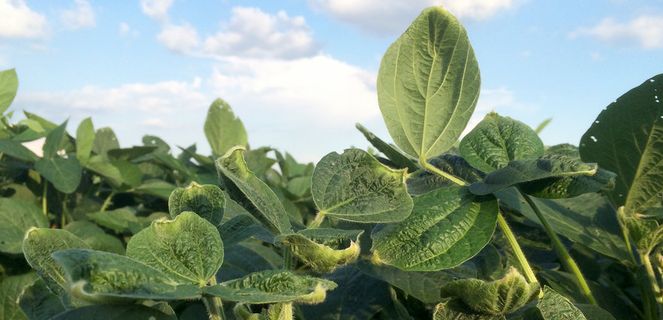Limited dicamba use allowed for farmers, but litigation ongoing
by April 14, 2020 4:31 pm 869 views

Farmers can start using the weed killer dicamba this week, and a significant amount of litigation is on the horizon.
A Missouri peach farmer was recently awarded $265 million after a jury found that his orchard was damaged by dicamba-based pesticides, according to the University of Arkansas Division of Agriculture. A U.S. District Court jury doled the money to a Cape Girardeau farmer, Bill Bader, in February after 30,000 of his peach trees were reportedly damaged or destroyed by dicamba used by other farmers near his farm.
Hundreds of similar lawsuits have been filed, and their rulings could have far-reaching effects on the herbicide’s use in the United States, according to the University of Arkansas. The lawsuits filed in the federal courts have been consolidated into one case featuring two major claims.
“The plaintiffs’ allegations were divided into two categories, claims that had to do with crop damage allegedly caused by dicamba, and claims that one of the companies had allegedly created a monopoly of the pesticide-resistant crop market,” said Brigit Rollins, staff attorney from the National Agricultural Law Center.
Although dicamba is not a new tool in the fight against weeds, the latest round of dicamba formulations was released to be used in cotton and soybean crops developed specifically to resist its damaging effects. The lawsuits claim that the formulations do not remain where they are applied and move into other, non-resistant crops, causing damage.
“How these lawsuits play out could have a significant impact on how pesticides and pesticide-resistant, genetically engineered crops are used in agriculture,” Rollins said.
Rollins will discuss these lawsuits, the claims being made by both the plaintiffs and the defense, and what the outcome of each suit could mean for dicamba use in the U.S. in a free webinar, hosted by the National Agricultural Law Center Wednesday (April 15).
Arkansas farmers that use the herbicide may need to take note. Dicamba has been highly controversial in its application since the Arkansas Plant Board received about 1,000 damage complaints in May 2017, primarily in northeast Arkansas. Drift from the application of dicamba was suspected to be damaging other crops.
Previously, the board, which investigates and reviews complaints, enacted higher fines on improper dicamba applications meant to serve as a significant deterrent to potential violators.
Dicamba has been banned in several states. Dicamba has been used as a herbicide for more than 50 years to manage 200 broad leaf weeds.
